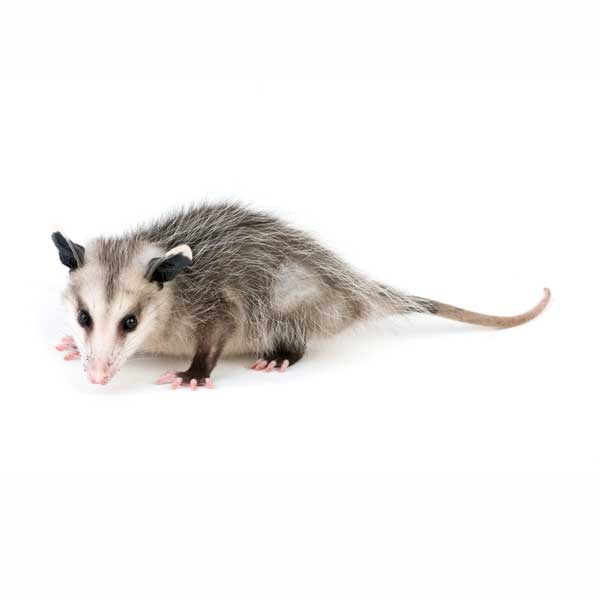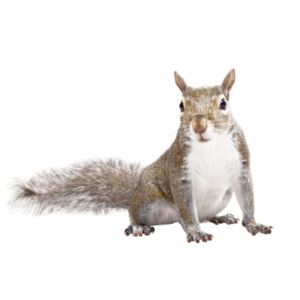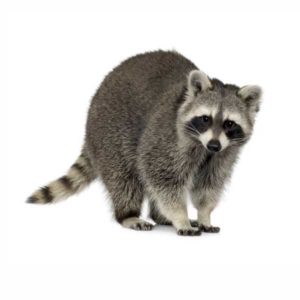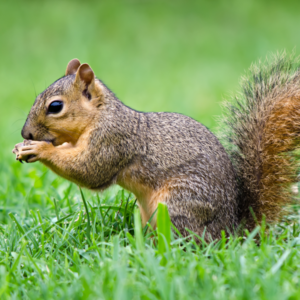
Opossums in Atlanta, GA
Opossums are distinctive marsupials with pointed faces with pink noses, small black eyes, and hairless tails that are prehensile, allowing them to grasp and hold onto branches. Their bodies are covered in coarse fur that ranges from gray to black, and they have long, sharp claws on their feet, which aid in climbing and digging. Opossums are primarily nocturnal creatures, using their excellent sense of smell and hearing to forage for food.
Opossum Habitat
Opossums prefer habitats near water sources but can thrive in diverse environments due to their flexible diets and nesting habits. Their nests can be found in tree hollows, dens, burrows dug by other animals, or even in attics and spaces beneath buildings. Opossums are opportunistic feeders, consuming a wide range of food based on availability. Their diet includes insects, fruits, vegetables, small mammals, birds, eggs, carrion, and even garbage. They play an essential role in controlling insect populations by feeding on pests like ticks and cockroaches. Due to their scavenging habits, they sometimes come into conflict with humans by raiding garbage cans or pet food left outside.
Opossum Behaviors, Threats, or Dangers
Opossums generally pose minimal threats to humans and are not aggressive animals. However, there are some considerations regarding potential dangers they might pose. Being carriers of certain diseases such as leptospirosis, tuberculosis, and spotted fever, they can indirectly transmit these illnesses through their feces, urine, or bites to humans or pets. Moreover, they might act as hosts for parasites like ticks, fleas, and mites, which can carry diseases and infest homes if opossums take shelter nearby. Although opossums have a defense mechanism of “playing dead” when threatened, their reactions might sometimes surprise or startle humans or pets. If you have opossums on your property, it’s best to contact your local wildlife removal company to have them safely relocated.



